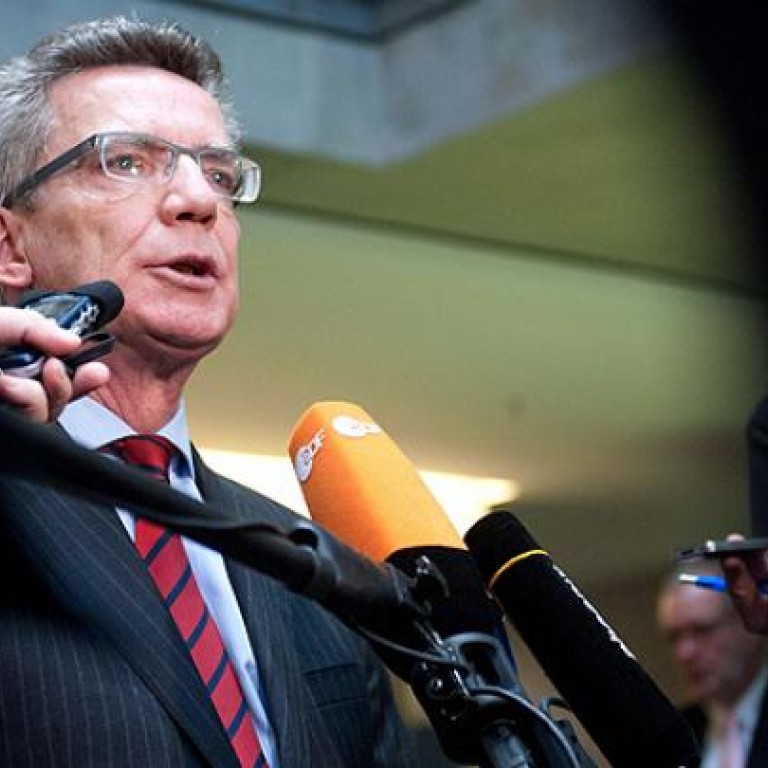
Russia warns Turkey against deploying Patriot missiles
Russia on Thursday warned Turkey against deploying Patriot missiles to protect its troubled border with Syria, saying it should instead help broker peace.
Russia on Thursday warned Turkey against deploying surface-to-air Patriot missiles to protect its troubled border with Syria, saying it should instead use its influence to help broker peace in the war-torn country.
“The militarisation of the Syrian-Turkish border is of course a worrying sign,” foreign ministry spokesman Alexander Lukashevich said, adding Turkey should help the two conflicting sides to start a dialogue.
Nato ambassadors met on Wednesday to consider a Turkish request for the deployment of Patriot missiles near its border with Syria as the conflict in its southern neighbour deepens.
The move highlights Ankara’s fears that the situation on its border could deteriorate rapidly and echoes its calls for military support during the two Gulf Wars, when Nato deployed surface-to-air missiles on its soil in 1991 and 2003.
Turkey formally made the request after weeks of talks with Nato allies about how to shore up security on its 900-kilometre border. It has repeatedly scrambled fighter jets along the frontier and responded in kind to stray Syrian shells flying into its territory.
The head of Nato said the alliance would discuss the request “without delay”. Ambassadors from the 28 Nato members convened a meeting at the military alliance’s Brussels headquarters.
“Such a deployment would augment Turkey’s air defence capabilities to defend the population and territory of Turkey,” Secretary-General Anders Fogh Rasmussen said. “It would contribute to the de-escalation of the crisis along Nato’s south-eastern border.”
Turkey is reluctant to be drawn into a regional conflict but the proximity to its border of bombing raids is testing its pledge to defend itself. It has found itself increasingly isolated and frustrated by a lack of international action.
A major player in supporting Syria’s opposition and planning for the post-conflict era, Turkey is worried about Syria’s chemical weapons, the refugee crisis along its border, and what it says is Syrian support for Kurdish militants on its own soil.
“The missile request is totally based on a defensive perspective, for the protection of Nato territories, there is no kind of aggressive intention from our side,” a Turkish government official said, adding that the missiles were only one part of the contingency planning.
“Our worst case scenario is firstly a huge refugee influx ... and secondly what the international community would do if Syrians trying to escape to Turkey are shot at,” he said.
“If there are tens of thousands waiting on the border and they are attacked, what would be the response.”
Concerns in Ankara deepened last week with an air assault by forces loyal to President Bashar al-Assad on the rebel-held frontier town of Ras al-Ain, which triggered some of the biggest refugee movements since the 20-month-old conflict began.
More than 120,000 Syrian refugees are sheltering in camps in southern Turkey and with winter setting in and millions of people estimated to be short of food inside Syria, there are concerns many more will pour in.
Turkey has led calls for a buffer zone to be set up inside Syria where refugees could be safely sheltered, a move which would need to be policed by foreign air power to be credible, but the idea has gained little international traction.
Rasmussen has said any missile deployment would be a defensive measure to counterattacks, and not to enforce a no-fly zone. Rebels have called for a no-fly zone as they are almost defenceless against Syria’s air force.
Germany, the Netherlands and the United States, are the only three Nato allies with appropriate Patriot surface-to-air missile systems available.
German Foreign Minister Guido Westerwelle said on Wednesday he had told his ambassador to Nato to approve Turkey’s request, while the Dutch government said it would consider it.
US ambassador to Nato Ivo Daalder said on his Twitter account that no immediate decision was expected on Wednesday.
The Patriot missiles deployed to Turkey during the Gulf Wars were provided by the Netherlands.
Ankara twice this year has invoked Article 4 of the Nato charter which provides for consultations when a member state feels that its territorial integrity, political independence or security is under threat.
But some experts said deploying Patriots to Turkey would be partly symbolic, aimed at showing that Nato was behind Turkey.
Manufacturer Raytheon says Patriot provides “a reliable and lethal capability to defeat advanced threats, including aircraft, tactical ballistic missiles, cruise missiles and UAVs (drones)”.
